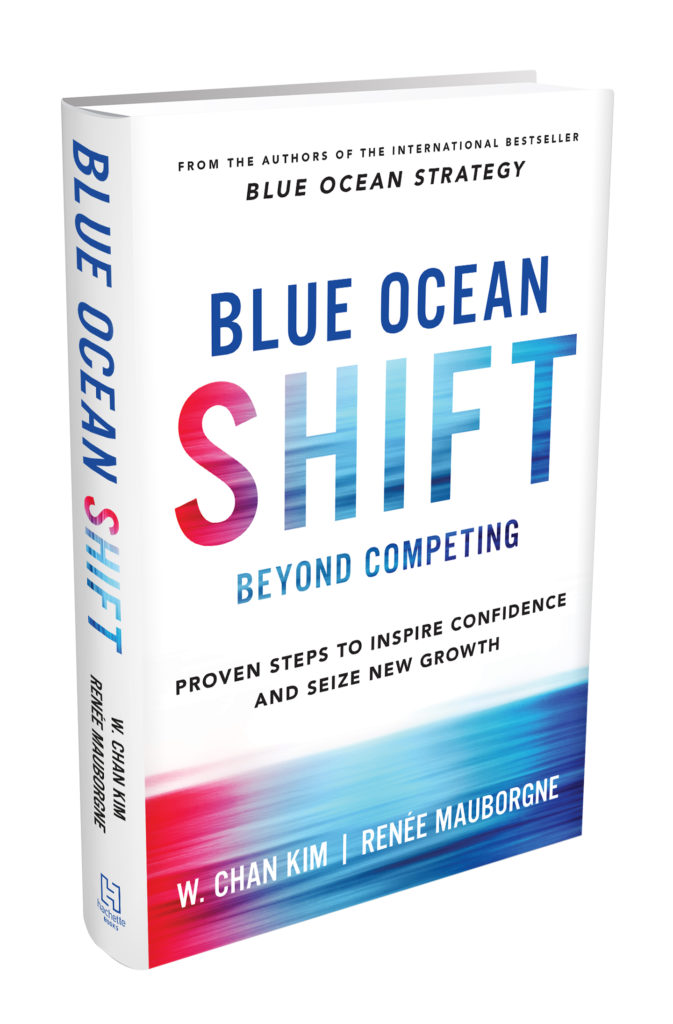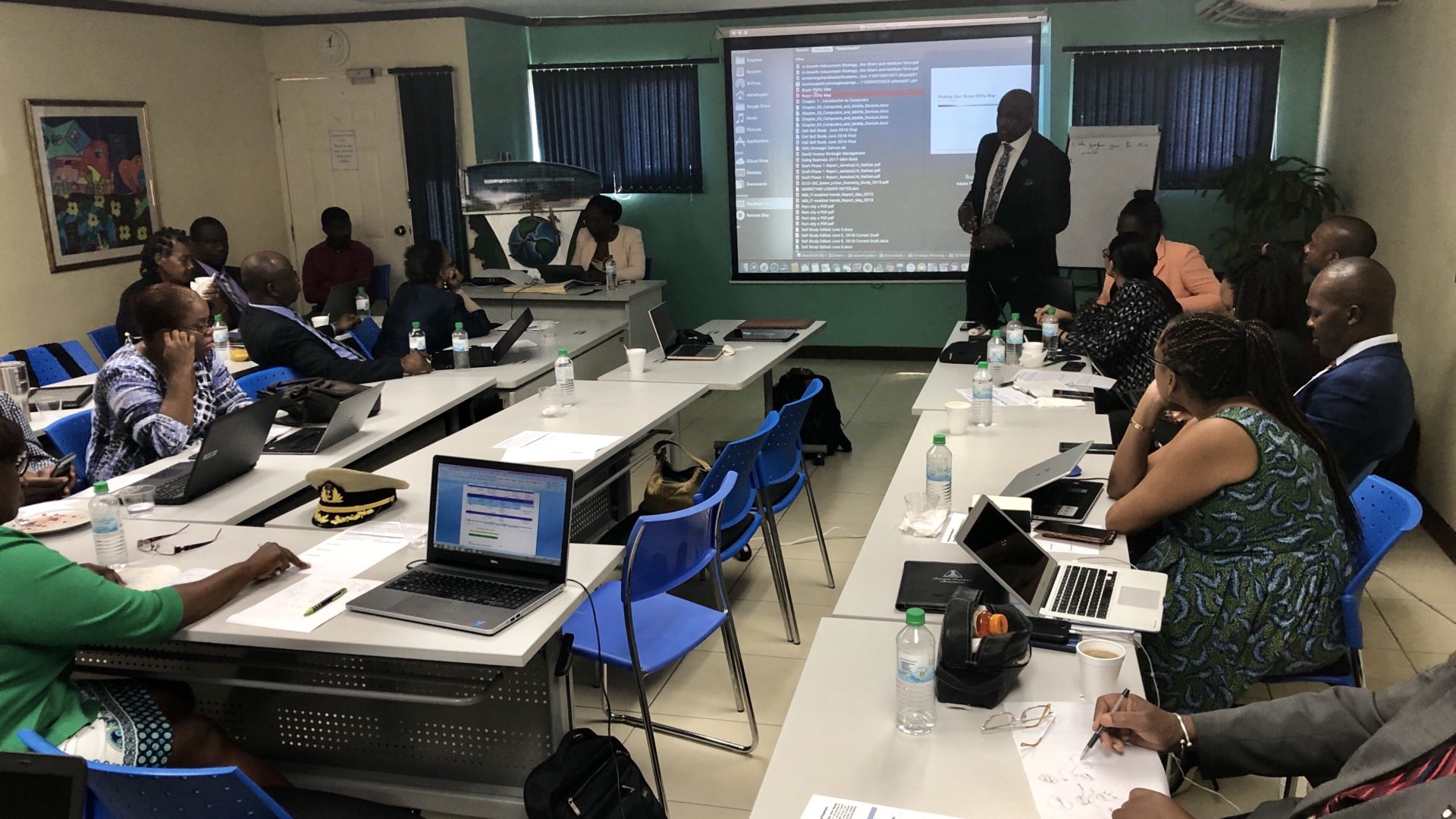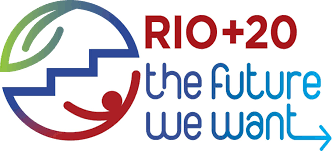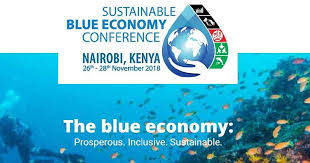Blue Ocean and Blue Economy
We have just finished our first meeting of the new year, a two-day get-together to debate our way forward. We have had a very vibrant discussion among colleagues and have made a lot of progress.
I would summarise:
Exciting times lie ahead.
As one result – let’s say as a personal résumé: I should write a short blog post about Blue Oceans and Blue Economy.
The Centre for Blue Economy and Innovation is a direct result of the Blue Ocean Strategy.
Blue oceans? Blue economy? So much blue?
You feel confused?
You can.
No problem mon.
When I first heard about Blue Ocean Shift, I was also running in the conceptual trap and was thinking it has something to do with the real ocean.
But it hasn´t.
The Blue Ocean Strategy is a business strategy, I would say a management tool, shifting your business from the Red ocean, from the waters of fierce competition to the Blue ocean, let´s say open waters of exclusivity – at least for a while.
W. Chan Kim and Renée Mauborgne will name this transformation “Blue Ocean Shift”.

Why a Centre for Blue Economy and Innovation?
When we were discussing how the CMU should address pressing issues for a small island like Jamaica, like sea level rise, stronger hurricanes, more droughts and heat waves and other long-term effects of global climate change, one of the ideas were to establish a Centre for Renewable Energy and Climate Change.
I see the concept “Blue Ocean Shift” as a tool of analysis. You ask yourself: Where are we? Where are the others? How can we avoid to compete and use our energy, fantasy, and imagination to set a course away from the Red ocean of competition towards the Blue ocean, untouched areas?
After a little bit of research with a web-based search engine, it became clear that such a Centre for Climate Change is in the middle of the red ocean because more or less every university has a center like this.
We want to concentrate on a relatively new concept, dealing with the same spectrum of problems, but with a different focus. Our “new” perspective is to understand how our activities can help to create sustainable wealth from the world´s oceans and coasts, lakes, and rivers and we called it Centre for Blue Economy and Innovation.
The concept or new paradigm of the Blue Economy emerged in the context of the Rio+20 Conference on Sustainable Development and the Green Economy. At that time it could be seen as a branch of the Green Economy.
After the Rio summit in 2012, we could see the first steps of considering the potential of the oceans for growth and later on, the integration of that sector in the definition in the Sustainable Development Goals. Goal 14 “Life under water” established targets to substantially reduce marine pollution, address ocean acidification, sustainably manage marine resources and increase scientific knowledge and transfer marine technology to developing countries, in particular, small island developing states.
The Blue Economy comprises the same principles and goals as the Green Economy. However, the concept has evolved from a “blue aspect of a green economy” to a paradigm in its own right.
Oceans and lakes are seen as “development areas” that should be given an opportunity for sustainable development. The aim is a sustainable management of marine resources that enables existing and new areas for economic growth and job creation without destroying the ocean habitat.
From this perspective, Blue and Green Economy are mutually supportive. Greater prosperity and social justice while significantly reducing environmental risks. In this sense, the concept of the Blue Economy opens up new perspectives and new possibilities for the sustainable use of the oceans. For centuries, the seas and lakes have been seen as an unlimited resource and as a global wastebin, where environmental costs have been consistently excluded from any economic calculation.
The new Blue Economy approach aims to decouple general socio-economic development from environmental degradation. The real value of the oceans and seas must become clear in order to enable sustainable use and protection of the ecosystem, which is not unlimited.
I like to see the CBEI
- based on that Blue Ocean Shift,
- educate Industry ready graduates,
- doing research (academic or applied),
- implementing projects,
- valued by the industry,
- with a practical impact,
- with the possibility to make the world a better place,
- with a sustainable use of the potential of the ocean and coasts,
- where we will increase our reputation (call it if you like standing),
- based on standards and values,
- and hopefully one day also on tradition.

When our graduates and their projects have a positive impact to make our world a better place, I welcome the concept and they even can make money; a lot of money.
I will be the last one who will complain. But money making shouldn’t be the only purpose.





